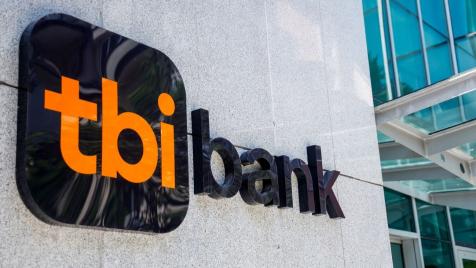Free Competition and Faded Illusions
Mastodons live affluently in a time of a single market created by globalization and digital technology

© ECONOMIC.BG / Pixabay
Free competition is dead! Long live free competition – this is how the mantra of competitiveness, which under equal conditions favours the better, sounds like today. If we trust the theoretical postulates, perfect competition, also called free and flawless, guarantees a fair race. In this model and under the conditions of free access to the market and information, a large number of small and medium-sized companies compete with each other in the production and sale of homogeneous products. But more and more this is just a theory, which the existing market reality refutes, even though the world has taken care to provide institutional protection for fair competition. It is becoming rather apparent that a handful of companies are conquering the global market. They, figuratively speaking, block every opportunity for “others to fish” in the same waters. Surveys show that among the social networks, the share of Facebook on a global scale is almost 70%, and it even reaches 95% in Bulgaria. Google owns 90% of the global search engine market. In online sales in the US, Amazon is close to 50% of market share, exceeding 90% for batteries, household goods and cosmetics. Google and Facebook hold more than 50% of the global digital advertising market. All this, of course, is subject to a very dynamic change, and is more and more to the benefit of the giants who become total monopolists. The Winners Who Take It All are superstars like Facebook, Amazon, Google. These technology companies are conquering the markets, leaving little room for potential competitors.
Opium for the Nations
Many believe that it is beneficial to assess the level of competition by the effects on product quality, productivity and innovation. Competition distortions move economies away from the “social optimum”, thus rising prices, and profits usually accompany this process. In today’s economy, dominated by digital technologies, not everything is as transparent as we want it to be. Consumer choice, for example, does not seem to be diminishing – we have more banks, TV channels, car brands, gas stations, and we have more products in the shop. But isn’t that just a marketing illusion, which actually disguises the fact that we don’t have much of a choice.
No Limits
Competition, considered a fundamental virtue of a free market economy, is heading towards its decline under the pressure of omnipotent interests that do not recognize national borders. The effect of this is measured by maintaining high prices, monetary policy inefficiency, restricting consumer choice, pressure on wages and employment. Thus, production and productivity depend on the respective corporation, which is more and more in control of innovation, as it also determines investments. It has become a practice to acquire emerging competitors for either their developments, which add value to the big business that buys them, or simply to eliminate them as a factor that can affect the market (killers acquisitions are acquisitions aimed at stopping the development of a cheaper or a brand new product or service).
The Key to Everything
The dominance of large corporations has a tremendous impact on the competitive environment and consumers since they totally transform the economy, as well as life itself, and they hold the key to everything – from the product and the model according to which the product will be offered, to the person and the way they will work and be paid. It is up to them whether small companies will have “air to breathe” and whether they will survive. Thus, we enter a time of a single market created and dominated by digital technology, where one leader can reap the vast majority of profits. In this way, in the ocean of globalization, whales live even more affluently.
Is the Battle Lost?
Bulgaria and the countries from Eastern Europe continue their transition. But transition to what? 30 years have passed unnoticeably, and by the time we learned the mantras of what we want to “transplant” to our land, these mantras got outdated and stopped working. Not just us, but those we wanted to resemble, have been changing. The trend of the universal change is clear, and we find it summed up in the words of the British writer and publicist Gilbert Keith Chesterton: “More capitalism does not mean more capitalists, but less capitalists.” And truly, big businesses that are getting bigger are using their scale to choke competition. “Google, Amazon, Apple, Facebook and Microsoft together have acquired more than 436 companies and startups in the last 10 years, and regulators have not challenged any of these deals,” say Jonathan Tepper and Denise Hearn in their book, “The Myth of Capitalism: Monopolies and the Death of Competition”. They both believe that capitalism has won the battle for private property, but lost the battle for competition.
Apparently, globalization does not guarantee more
competition but less of it. Mastodons are the mutants of capitalism. We are
entering the time of their triumph, as it seems.















